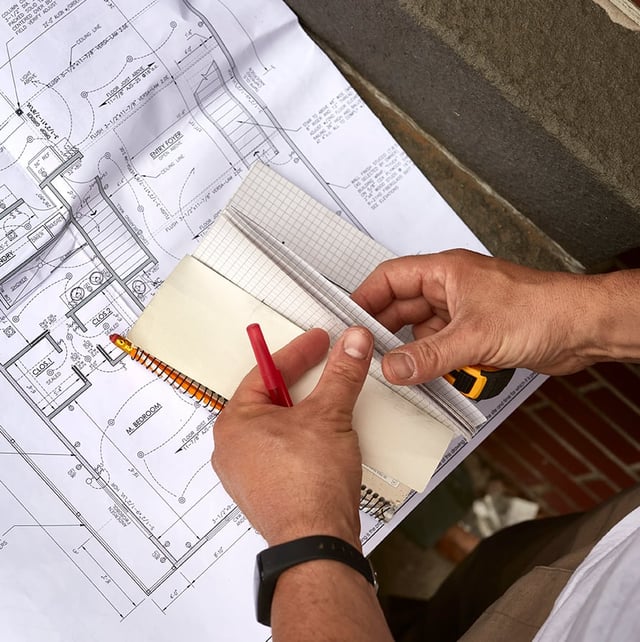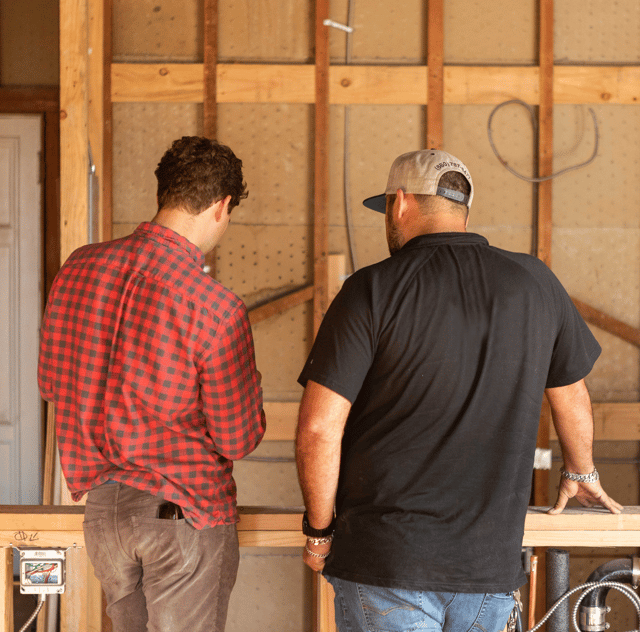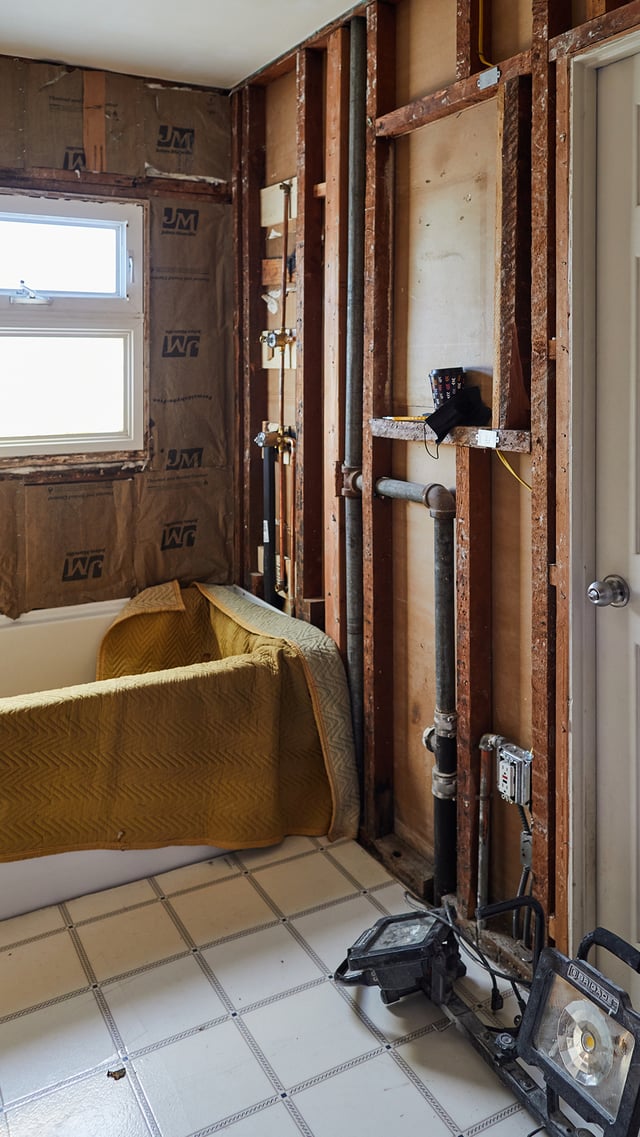
Working with Contractors
The Block Way of Renovating: A Complete Homeowner’s Guide
11.24.2025


In This Article
Renovations can be an exciting but time-intensive endeavor. Understanding the key factors that influence renovation timelines is crucial for effective planning, managing expectations, and ensuring a smooth and successful project. Below, Block explores the primary factors that can impact renovation timelines, helping you navigate your project with confidence and efficiency.
The scope of your renovation is a primary factor in determining the timeline. The size and complexity of the project, such as whether it involves structural changes, electrical or plumbing work, or major design alterations, will significantly affect the overall time required for completion. A larger scope will generally necessitate more time to complete the necessary tasks.
The planning and design phase is a critical aspect of any renovation project. It involves conceptualizing the project, finalizing the design, selecting materials, and creating a detailed plan. This phase can take a considerable amount of time, especially if there are multiple revisions or if you engage professionals for design consultations. Proper planning and design upfront can help streamline the subsequent stages of the renovation.
If your renovation requires permits or approvals from local authorities, it is essential to factor in the time needed for this process. Obtaining permits can vary in duration depending on your location and the complexity of the project. Research the specific requirements, submit applications well in advance, and allow sufficient time for reviews and inspections to prevent unnecessary delays.
The availability of contractors and subcontractors can impact renovation timelines significantly. Popular contractors or specialized tradespeople may have busy schedules, resulting in longer lead times before they can begin work on your project. It's advisable to schedule contractors in advance and establish clear timelines and expectations to ensure their availability aligns with your project timeline.
If your renovation involves ordering custom materials, fixtures, or furniture, consider the lead times for delivery. Some items may have longer production or shipping times, which can delay the progress of your project. It's crucial to factor in these lead times when planning your renovation timeline to avoid unnecessary delays caused by missing or delayed materials.
Renovations are notorious for unexpected issues and challenges that can impact timelines. These can include weather delays, hidden structural problems, electrical or plumbing complications, or encountering unforeseen conditions during the renovation process. It's important to build in some buffer time within your timeline to account for these unforeseen circumstances and allow for necessary adjustments without compromising the overall project.
Effective communication among all parties involved in the renovation is paramount to ensuring timelines are met. Regular communication with your contractors, suppliers, and professionals will help maintain alignment, address any issues promptly, and prevent delays caused by miscommunication. Additionally, delays can occur if there are frequent changes or indecisiveness. Open and transparent communication channels are key to a successful renovation timeline.
Financial considerations, including budget limitations and funding availability, can impact the timeline. Delays may arise if adjustments need to be made due to budget constraints or if additional funding is required.

Written by Block Renovation

Renovate confidently with Block
Easily compare quotes from top quality contractors, and get peace of mind with warranty & price protections.
Thousands of homeowners have renovated with Block

4.5 Stars (100+)

4.7 Stars (100+)

4.5 Stars (75+)

Working with Contractors
The Block Way of Renovating: A Complete Homeowner’s Guide
11.24.2025

Working with Contractors
Steps to Vetting a General Contractor
11.04.2025

Contractors
50 Most Common Home Renovation Questions (Answered by Experts)
10.28.2025

Contractors
Half Bathroom to Full Conversion: Costs, Permits & Designs
08.02.2025

Process
Gutting a Bathroom: What It Entails, Costs & Timeline
07.15.2025
Renovate confidently